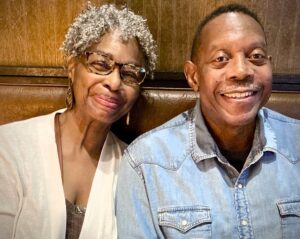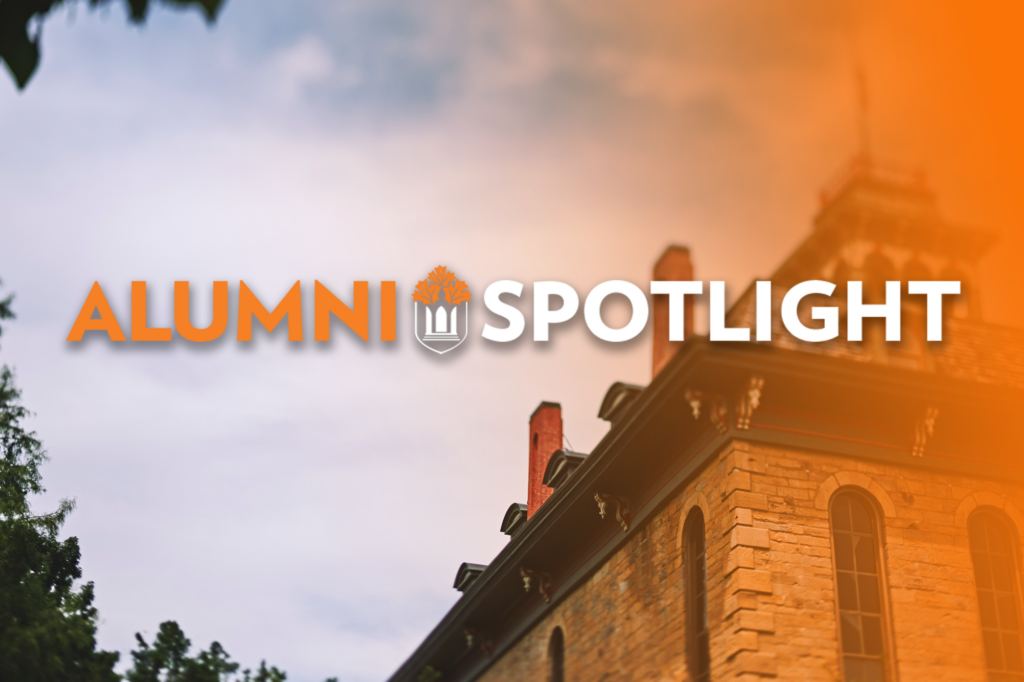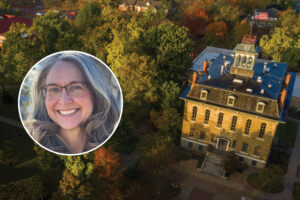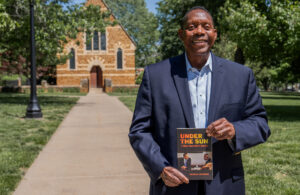Each month we connect with alumni who are making a difference in their careers and communities and find out how Baker helped them along their way.

Denice (Pledger) Jackson, ’76, and Harold Jackson, ’75
What was the first moment that made Baker University feel like home?
Denice: From the moment I was accepted at Baker, I knew it would feel like home because I had a sense of community already in place. My sister Brenda was already a Baker student, my cousin Clarence Mays was an incoming freshman like me, and several alumni from my high school in Kansas City, Manual, were Baker students, too.
Harold: Coming from Alabama, I had a lot of adjustments to make as a freshman, including how to dress for Midwestern winters. But renewing friendships as a sophomore made Horn Hall feel more like a home.
What was your favorite class and why?
Denice: My favorite class was biology taught by Eugene Nelson. I loved the classroom experience and especially the excursions to the Wetlands. I also liked my intro chemistry class taught by Milford White. He was very patient with his students, and I loved our afternoons in the lab conducting experiments.
Harold: I liked all my journalism classes, but my favorite may have been a political philosophy course taught by Karen Horvath. Clarence Mays and I were the only students and sometimes the three of us would have class sitting on the lawn.
Who made the biggest impact on you while at Baker?
Denice: Professor Nelson was also my class advisor and provided the counseling and encouragement I needed to begin my career in nursing. Baker didn’t have a nursing program back then, so after three years at Baker I attended St. Francis School of Nursing in Wichita and received both my B.S. in biology from Baker and R.N. in nursing from St. Francis in 1976.
Harold: Journalism professor Beverly Paulson taught me the skills I needed to get my first newspaper job. But education professor Jesse Milan, as adviser to Mungano, helped me and other Black students cope with life on a mostly white campus.
What are two things you would tell current students?
Denice: First, the liberal arts education that Baker provides includes experiences that prepare you to follow many paths. My love of music led me to join the University Singers and the Baker Playmen. I was also a cheerleader and campus guide. Second, learn from and appreciate all the different people and cultures you will find on a small campus.
Harold: Just one: They must be more vocation oriented. I like the wider latitude that a liberal arts education provides to figure out what you want to become. But so much has changed since I went to Baker, including the cost, that students can’t afford to take too long to figure out their goal.
How did your Baker experience shape your career?
Denice: Baker was the base where my career was launched. The path I needed to follow to obtain the college education that launched my career in medicine was charted at Baker. Things I learned at Baker have helped me through each stage of my nursing career.
Harold: My journalism classes and writing for the Orange opened the door for my first job. Today, interning at a newspaper is virtually a prerequisite to getting a newspaper job. But in 1975, my professors at Baker had taught me enough to be a good reporter once given the chance.
Briefly describe your career path since graduating from Baker.
Denice: Since graduating in 1976, I have worked as a nurse in Missouri, Alabama, Pennsylvania, Maryland, and New Jersey. At various hospitals, I have worked in pediatric, cardiac, and orthopedic surgery, as well as intensive care units. Some of my most rewarding work was with Healing the Children medical missions in El Salvador, Ecuador, and Ethiopia.
Harold: Since graduating from Baker, I have worked for five newspapers and a wire news service in four states: Alabama, Maryland, Pennsylvania, and Texas. My writing has received several awards during that span, including receiving a Pulitzer Prize for editorial writing in 1991.
What do you love about Baker the most?
Denice: I would say the sense of community you feel when you’re on campus. I am reminded of Dean Neal Malicky, and how he set an example as an administrator for how people from so many different places and backgrounds could get along and how professors and students in such an intimate setting could make learning not just easier but enjoyable.
Harold: It’s always the campus. Intimate is a better description of Baker than small. You can walk anywhere you need to go but never does the campus feel cramped. Its trees and flowering plants help provide a perfect setting for contemplation leading to learning.





